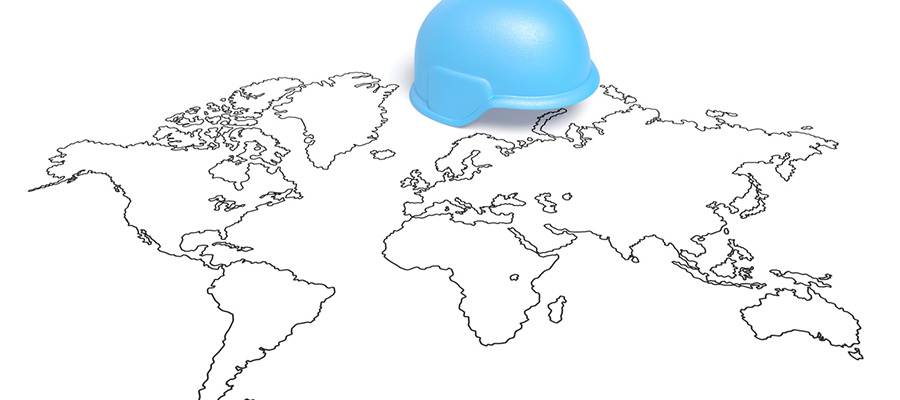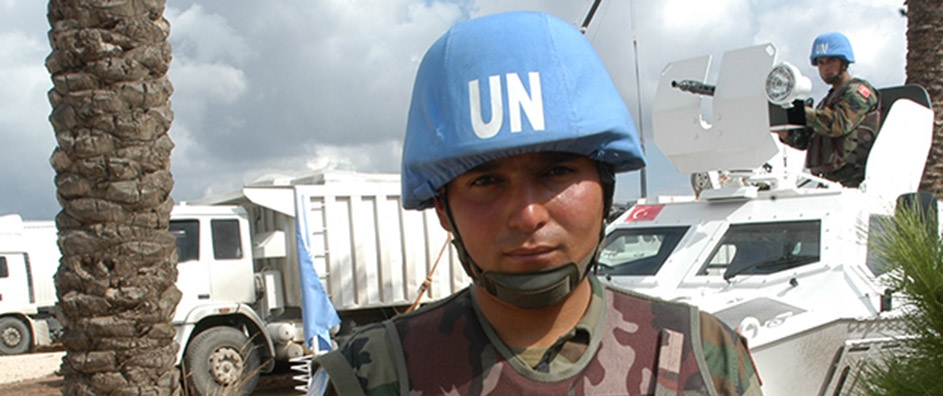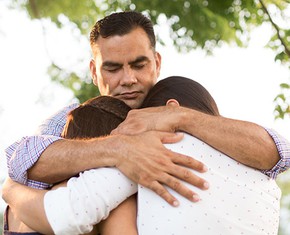The views expressed in our content reflect individual perspectives and do not represent the authoritative views of the Baha'i Faith.
In ten specific proposals to the United Nations for the revision of its Charter, the global Baha’i community recommended giving the UN real authority and military power:
Baha’i Proposals to the United Nations for Charter Revision, 1955.
The experiences of the last decade have demonstrated the need for certain fundamental changes in the charter of the United Nations if that organization is “to save succeeding generations from the scourge of war…., reaffirm faith in fundamental human rights, in the dignity and worth of the human person, in the equal rights of men and women and of nations large and small; to promote social progress and better standards of living in larger freedom.”
In order to insure the realization of the principles proclaimed in the Preamble of the Charter of the United Nations, that organization must be given real authority and military power to maintain Peace and uphold international Justice; it must operate in accordance with the principle of equality of nations large and small; it must become the guarantor of human rights, faith in which was so eloquently proclaimed in the Preamble. – from the Baha’i International Community’s recommendations to the 1955 United Nations Charter Revision Conference.
Of course, the Baha’i proposal has not yet been implemented. The UN’s real authority still resides in the Security Council, where action is easily stopped by one veto from a single dissenting member nation.
So the United Nations has no standing army today. Instead, it relies on its member nations to supply troops to staff the UN Peacekeeping forces. When a conflict arises anywhere in the world, the UN has to start from scratch, asking for and assembling a multinational force from volunteer nations. Those countries—most often the poorer UN members like Bangladesh, Indonesia, Pakistan or several different African nations—usually are the ones who readily agree to send troops. Each time the UN Security Council does vote to utilize its blue-helmeted peacekeepers, that voluntary process takes between three months and a year to actually assemble and deploy. Meanwhile, conflicts deepen and people die.

That’s part of the reason UN peacekeeping missions have repeatedly failed. The Rwandan genocide and the Srebrenica massacre in the former Yugoslavia represent just two of the most glaring examples of such abysmal and fatal failure. In both of those cases, experts agree that a standing UN military would have been able to avert or at least minimize the massive casualties that took place.
So, the Baha’i teachings say, it is time to establish an authoritative global Parliament and a corresponding global military force, ready and able to respond quickly to crisis or conflict:
Once the Parliament of Man is established and its constituent parts organized, the governments of the world having entered into a covenant of eternal friendship will have no need of keeping large standing armies and navies. A few battalions to preserve internal order, and an International Police to keep the highways of the seas clear, are all that will be necessary. – Abdu’l-Baha, Star of the West, Volume 3, p. 115.
For the establishment of universal peace, we need an International Board of Arbitration, composed of representatives from all the nations of the earth. This Board would decide upon questions of boundaries, of national honour and property, the size of armaments for each government, and all questions of an international and justiciable nature, having the backing of the united powers to make its rulings effective. Together they would furnish an international police force. Most of the battleships should be turned into a mighty merchant marine. If so great a remedy would be applied to the sick body of the world, it would certainly be the means of continually and permanently healing its illness by the conciliation of universal moderation. Reflect that, under such conditions of life, no Government would need to prepare and accumulate war materials, or would need to pay heed to the invention of new weapons of defence for the vexation and hurt of mankind. On the contrary they would require only a few soldiers, as a means of assuring the safety of the state and punishing the wicked and rebellious and preventing the growth of civil sedition. Not more than these few would be needed. – Ibid., Volume 4, p. 137.
By giving the United Nations a permanent, standing military capacity and the real authority to use it, as the Baha’i International Community originally recommended in 1955, we could build a global rapid-reaction force to quell regional wars, enforce international agreements, quickly stop genocides and immediately respond to deadly natural disasters. Such a force would actually cost much less than the deployment of other multinational options such as ad-hoc coalitions or treaty alliances like NATO.
In the next essay in this series, we’ll examine the second recommendation the Baha’i submitted to the UN: that it “must operate in accordance with the principle of equality of nations large and small.”
You May Also Like
Comments

















The Baha'i Writings repeatedly warn against the centralization of ...power and so this proposal for the militarization of the UN does not conform either to Baha'i Teaching nor to good sense.
organizations always have
the potential more misuse
of power, the temporary
global assemblage of a
United Nations peacekeeping/fighting
force might have less,
because after the crisis
it would break up and each
part return home. It's theoretically possible that
in a short time some malevolent plan would cause them all to remain
and proceed on a unified
crusade for world martial
domination, but I think
that is extremely unlikely!
nations would "furnish an
international police force".
Even though the immediate
context does mention the
seas and battleships specifically, I believe the
larger context of Abdu'l-Baha's writings mean enforcing peace on land, too. He dwells on this whole subject in "The Secret of Divine Civilization". It seems to
me that some of the domestic forces around the
world would quickly be assembled into one international reaction force
in a crisis, having already
been kept well-trained and
ready for their internal duties. ... I am sure the Baha'i writings do warn of
centralization risks, but
there are some things in
a globally-linked world that
demand global authority!
always vague about the United Nations' flaws, and didn't know anything about the 1955 proposals!
Dragging feet have clearly caused
many deaths! I didn't even realize
contributing troops is voluntary and
takes so long. What an outrage!
This new series will be very fascinating.